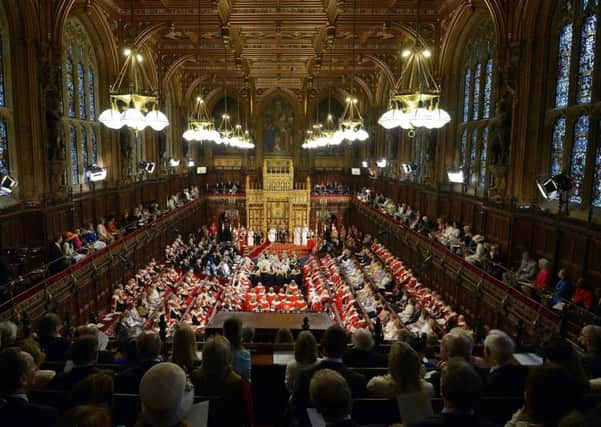YP Letters: The battle for Press freedom against the unelected Lords


THREE items (The Yorkshire Post, February 11) have some mutual relevance if we are to maintain free, balanced and reliable reporting of news and information.
The first is Ashley Highfield’s column where he informs us the House of Lords is once again endeavouring to override our elected Parliament on the matter of costs in libel cases. After the phone hacking scandal, it is right those involved were called to account and made to pay heavily when found guilty. However, the idea that a newspaper should pay complainants’ costs, irrespective of the outcome, is bizarre, but that is what the Lords are advocating.
Advertisement
Hide AdAdvertisement
Hide AdThe next is John Simpson’s letter and his ideas on reforming the electoral system in general.
Some may argue with a number of his points but I doubt many will argue against the idea that the House of Lords is an expensive relic largely filled with relics from an autocratic bygone age and long overdue for reform.
The third item is a paragraph in Tom Richmond’s column where he mentions the biased interviewing by opinionated BBC reporters like Laura Kuenssberg.
She is only one of a number who seem to think they are the news and their interviewees merely secondary props. That becomes most obvious whenever Brexit is the subject.
Advertisement
Hide AdAdvertisement
Hide AdI’m not sure how much we ordinary mortals can influence any of the above for the better but let us hope The Yorkshire Post survives the ramblings of the House of Lords and continues to serve us with balanced news and opinions.
From: Dr David Hill, CEO, World Innovation Foundation, Huddersfield.
OVER many years, I have determined that government and local authorities have a foolproof political way of getting their way on spending the taxpayer’s money, or should I say increasing the public debt, whether off the balance sheet or being on it.
In this respect, if they want something, their civil servants or officers under-estimate the costs and therefore it appears value for money, and therefore it is rubber stamped.
Advertisement
Hide AdAdvertisement
Hide AdIf they do not want something, they inflate the costs so much that it does not see the light of day, even though it may give great benefit for the people.
So don’t be deceived is my advice in thinking that government and local authorities use our tax wisely when they analyse their project, as they do not and usually the reason is that the politicians want something, not the people.